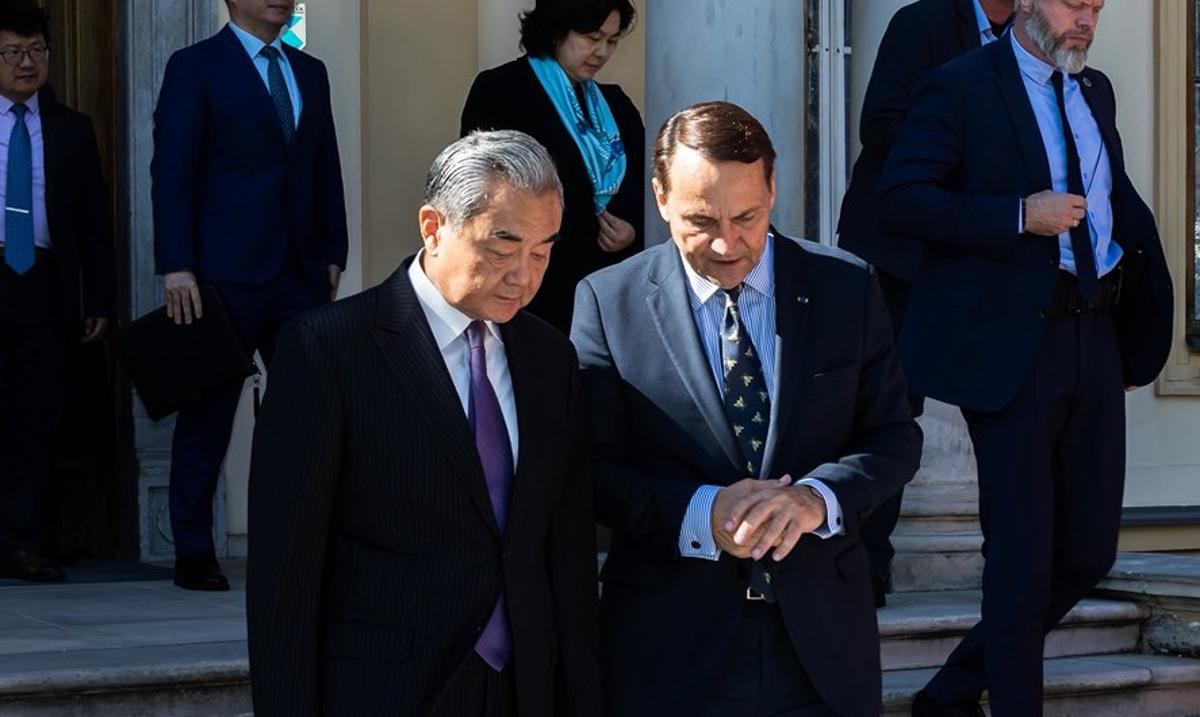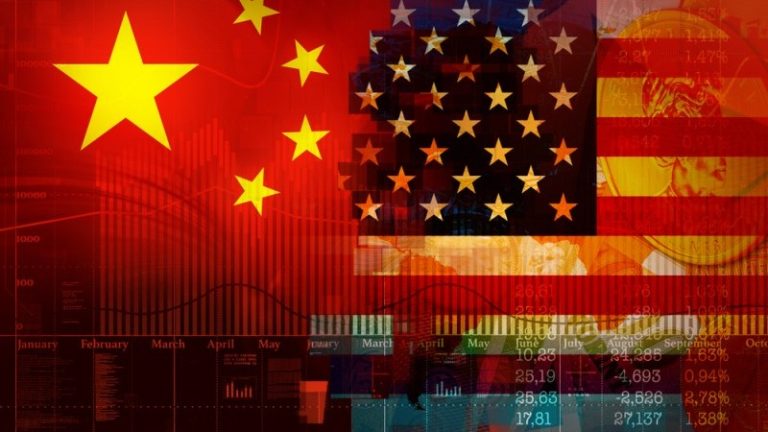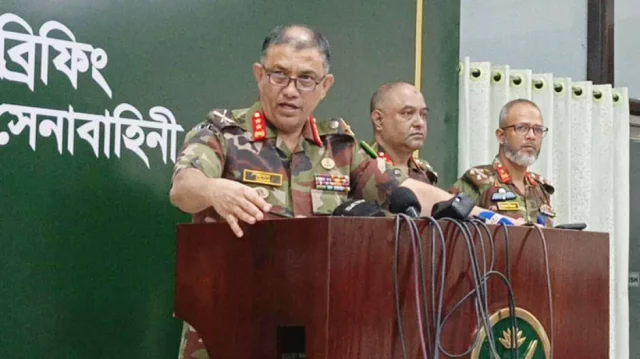
Chinese Foreign Minister Wang Yi and Polish Deputy Prime Minister Radosław Sikorski co-chair the fourth Poland- China Intergovernmental Committee meeting in Warsaw. Image: China FM.
(The Post News) – China and Poland decided to intensify their political, economic, and diplomatic cooperation during the fourth session of the Poland-China Intergovernmental Committee on Monday in Warsaw. The talks at the senior level, co-chaired by Polish Deputy Prime Minister and Foreign Minister Radosław Sikorski and Chinese Foreign Minister Wang Yi, opened a new chapter for bilateral cooperation in the face of growing challenges in international trade and security.
The two ministers deliberated on 75 years of diplomatic history, which were celebrated in 2023, and agreed to build on the milestone as a launchpad for intensified cooperation. At the same time, the two ministers confirmed their dedication to the Comprehensive Strategic Partnership (2024–2027 Action Plan), a framework aimed at deepening exchanges, expanding political dialogue, and expanding cooperation in trade, infrastructure, and culture.
“China, Poland, and Europe must adhere to the original intention of starting diplomatic relations, enhance our cooperation, enhance solidarity and cooperation, and safeguard legitimate rights and international justice,” Wang stated during the talks.
Sikorski reaffirmed that Poland stands ready to enhance cooperation and said Warsaw views Beijing as a strategic partner for building connectivity between Europe and Asia.
Strengthening China-Poland Transport and Connectivity
Transport and logistics cooperation were the most important issues of the Warsaw talks. Poland, being a major node of the China-Europe Railway Express, is located in the middle to unite East Asia and European markets. All the allies agreed on the development and modernization of transport corridors, harmonizing railway, sea, and air corridors, as well as ensuring freight security.
Poland and China also saw the importance of direct air transport links as a means of improving the frequency of flights and achieving a competitive service balance between the two countries. Wang mentioned Poland’s position on the trade routes of Eurasia, observing, “Poland is not only a gateway to Europe but also a bridge of cooperation that serves both sides.”
In addition to bilateral issues, both foreign ministers also discussed broader international and regional issues. They reaffirmed the safeguard of an international order based on international law and the UN Charter and committed to acting together in multilateral institutions, for example, the United Nations, ASEM, and the World Trade Organization.
Wang denounced the imposition of tariffs and the utilization of unilateral actions as a threat against international commerce. “The improper use of tariffs is against international principles and harms the lawful interests of all countries,” he contended, appealing to China and Europe to battle it in unison.
Apart from the committee session, Wang Yi also sat down with Polish President Karol Nawrocki. During their talks, Wang praised Poland’s growing active role in European affairs and urged Warsaw to contribute towards cultivating an “objective and rational understanding” of China in the European Union.
Nawrocki communicated Poland’s intention to deepen cooperation, further stating that Poland wants to cooperate with China in promoting international peace and stability. “We are willing to deepen our cooperation with China and set up long-term cooperation for the benefit of both nations,” Nawrocki asserted.
Wang’s visit to Warsaw concluded his tour of Central and Eastern Europe, in which he stopped over in Austria and Slovenia. His tour was intended to promote greater cooperation with key European allies and greater exchanges between Europe and China.
In Slovenia, Wang stressed that Europe’s afflictions today “are not caused by China” and implored Europe to see China as a friend rather than an enemy. Wang also reaffirmed China’s position on opposing war and sanctions and urged dialogue and peace negotiations to be the sole possible way of settling differences.
A Broader European Mission
Wang’s trip to Europe was seen by observers as a carefully calculated step to build trust with the EU members. “Poland is a key country in Eastern Europe that exercises a lot of political, security, and economic influence. Seeking opinions from Poland is extremely important in determining the overall direction of China-Europe relations,” Jiang Feng, a research fellow at the Shanghai International Studies University, argued.
Trade cooperation is the pillar of China-Poland relations. Inter-state trade amounts to some $23 billion annually, with strong development of Chinese investment in Polish energy, logistics, and manufacturing sectors. The two nations look forward to further growth in trade as infrastructure and transportation projects unfold according to the new action plan.
China and Poland have been diplomats since 1949, elevating their relations to a strategic partnership in 2011. They have since developed cooperation in many fields, from transport to culture.
The Warsaw summit emphasized the two nations’ shared interest in sustaining this partnership, balancing old relations with modern ambitions in trade, infrastructure, and diplomacy.
Even as China and Poland’s cooperation reconfigures global power, their relationship is an example of pragmatism. Both nations are set to turn ceremonial anniversary years into work opportunities, further ratcheting up relations in the coming years.



